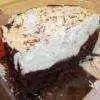-
Welcome to Celiac.com!
You have found your celiac tribe! Join us and ask questions in our forum, share your story, and connect with others.
-
Celiac.com Sponsor (A1):
Celiac.com Sponsor (A1-M):
-
Get Celiac.com Updates:Support Our Content
Question For The Pros
-
Get Celiac.com Updates:Support Celiac.com:
-
Celiac.com Sponsor (A17):
Celiac.com Sponsor (A17):
Celiac.com Sponsors (A17-M):
-
Recent Activity
-
0
Penobscot Bay, Maine: Nurturing Gluten-Free Wellness Retreat with expert celiac dietitian, Melinda Dennis
untilHello! Join me and treat yourself to a four-day, three-night restorative gluten-free retreat in a peaceful, private coastal retreat setting near Penobscot Bay in Maine. Dates: April 10-13, 2026 Enjoy engaging classes... -
- knitty kitty commented on Scott Adams's article in Multiple Sclerosis and Celiac Disease3
Gluten-Free Diet Linked to Reduced Inflammation and Improved Outcomes in Multiple Sclerosis (+Video)
I worried at one point on my journey whether I had MS, having many of the symptoms myself. However, my symptoms improved dramatically with high dose thiamine hydrochloride, Benfotiamine, and Thiamine TTFD. Thiamine deficiency symptoms overlap with MS symptoms, including changes on brain MRIs. Thiamine deficiency affected my eyes (light sensitivity),...- autoimmune disease
- celiac disease
- (and 7 more)
-
- Scott Adams commented on Scott Adams's article in Multiple Sclerosis and Celiac Disease3
Gluten-Free Diet Linked to Reduced Inflammation and Improved Outcomes in Multiple Sclerosis (+Video)
Better to know late than never, and it is too bad they did not test you for it earlier!- autoimmune disease
- celiac disease
- (and 7 more)






Recommended Posts
Archived
This topic is now archived and is closed to further replies.